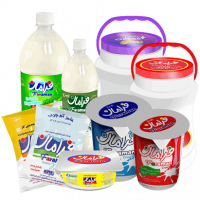When investors buy one, they buy what the package is, whether that is a fraction of a share, one share, or a bundle of shares of the underlying foreign stock. For example, Company A might have each foreign currency share worth $0.50 in U.S. dollars. As a foreign stock, Company A trades at this rate, but when packaged as an ADR, it can lump in 100 shares meaning each ADR is sold for $50 per ADR share. One of the most obvious benefits of investing in ADRs is that they provide investors with a way to diversify their portfolios. Investing in international securities allows you to open your investment portfolio up to greater rewards (along with the risks). One primary difference between the two types of ADRs is where they trade.
Adam received his master’s in economics from The New School for Social Research and his Ph.D. from the University of Wisconsin-Madison in sociology. He is a CFA charterholder as well as holding FINRA Series 7, 55 & 63 licenses. He currently researches and teaches economic sociology and the social studies of finance at the Hebrew University in Jerusalem.
ADRs Fees & Taxes
An unsponsored ADR is one that is set up without the assistance of the foreign company, as may be the case when a broker-dealer who wishes to establish a US trading market issues an ADR. An ADR is a negotiable certificate that represents ownership of American Depositary https://forex-world.net/ Shares, which themselves represent an interest in shares of a non-US company that have been deposited in a US bank. Think of it as you would a stock certificate, which represents shares of stock. The ADRs trade in dollars and clear through US settlement systems.
A guide to American Depositary Receipts (ADRs) – FOREX.com
A guide to American Depositary Receipts (ADRs).
Posted: Wed, 21 Jun 2023 07:00:00 GMT [source]
In other words, ADRs will allow you to buy Adidas, just like any other US-traded stock. With a regular stock, one share is always one share; there are no representations of other packaged units. Even though investors buy them in the same fashion as stock, ADRs are often more volatile because their value is subject to the currency exchange rate.
ADR programs (facilities)
The owner of American Depositary Receipts has the right to obtain stocks of the foreign company they represent. The ADR (American Depositary Receipt) Shares are the securities representing the ownership of non-US shares deposited in US banks. The foreign company actively supports the ADR program it sponsors and often considers it an important way of accessing the US market. For the average https://forexbox.info/ individual investor, the most efficient route to international diversification is through broad ETFs or mutual funds rather than individual securities. But for those who prefer to pick stocks and even for many professional fund managers, ADRs greatly simplify the complicated process of international investing. Level 2 ADRs trade on one of the many exchanges such as the S&P 500 or NASDAQ.
- Both ADRs and GDRs are usually denominated in US dollars, but may also be denominated in euros.
- Our operational and financial performance, presentations and reports.
- The stocks of most foreign companies that trade in the U.S. markets are traded as American Depositary Receipts (ADRs).
Approximately two-thirds of ADRs are in developed markets, with one-third in emerging markets. Unsponsored ADRs, on the other hand, do not receive much assistance. The whole issue is known as ADR, while each individual share is called an American Depositary Share (ADS). We are committed to providing timely, relevant and correct information in accordance with applicable laws and best practices. Find out more about our share, financial data and read our financial reports.
American Depositary Receipts
Unsponsored ADRs, on the other hand, are created by third-party institutions without the involvement of the foreign company. These third-party institutions, which could be banks or brokerages, purchase shares in the foreign company and then issue ADRs that represent ownership of those shares. American Depositary Receipts can be broadly delineated according to the participation of the company whose stock is being traded. A sponsored ADR is initiated by the company in partnership with the depositary bank to promote the distribution of its stock in the U.S.
Level II ADRs have slightly more requirements from the SEC than do Level I ADRs, but they get higher visibility and trading volume. This essentially Americanizes the security and makes it transparent from an investor’s point of view. American Depositary Receipts allow investors do this with stocks of companies based in dozens of different countries. Unsponsored ADRs are not only for small foreign companies but large ones as well. In fact, ADRs exist for some of the world’s largest and most powerful companies, including BMW, Nestle, and Adidas.
Share
The advantage that the company has by upgrading their program to Level 2 is that the shares can be listed on a U.S. stock exchange. These exchanges include the New York Stock Exchange (NYSE), NASDAQ, and the NYSE MKT. When buying an ADR, the process is often the same as buying a regular stock. Investors will use a stock symbol to purchase the ADR and may not even realize they are buying a foreign stock. There is no designation in the stock symbol that defines an ADR.
- Robinhood offers certain ADRs for trading on our platform, but not all.
- Over the last one year, the primary indicator of the US stock market performance, the S&P 500 index, has grown by a meager 2.5%.
- Companies with shares trading under a Level 1 program may decide to upgrade their program to a Level 2 or Level 3 program for better exposure in the United States markets.
- If this did not occur, it would be impossible to preserve the conversion rate established by the bank.
- The first sponsored ADR was for a British music company known as Electrical & Musical Industries (EMI).
In a sponsored ADR, the depositary bank works with the foreign company and their custodian bank in their home country to register and issue the ADRs. An unsponsored ADR is instead issued by a depositary bank without the involvement, participation, or even the consent of the foreign company it represents ownership in. Unsponsored ADRs are normally issued by https://investmentsanalysis.info/ broker-dealers that own common stock in a foreign company and trade over-the-counter. The term American depositary receipt (ADR) refers to a negotiable certificate issued by a U.S. depositary bank representing a specified number of shares—usually one share—of a foreign company’s stock. The ADR trades on U.S. stock markets as any domestic shares would.
Companies with shares trading under a Level 1 program may decide to upgrade their program to a Level 2 or Level 3 program for better exposure in the United States markets. Investors who held the old VLKAY ADRs had the option of cashing out, exchanging the ADRs for actual shares of Volkswagen stock—trading on German exchanges—or exchanging them for the new VWAGY ADRs. In fact, you can essentially trade them as if they were regular shares. As soon as the statement goes into effect, the depositary can accept deposits of securities of a foreign private issuer. In the case of unsponsored ADRs, the depositary must file a registration statement under the Securities Act of 1933 on Securities Act Form F-6. Over the last one year, the primary indicator of the US stock market performance, the S&P 500 index, has grown by a meager 2.5%.
This enables firms to convert prices to amounts more appropriate for American exchanges. This was to allow Americans to invest in shares of a British department store. Today, there are more than 2,000 ADRs available, representing shares of companies located in more than 70 countries. The Bank of New York, JPMorgan Chase, Deutsche Bank, and Citigroup are among the leading depositary banks, which create and issue ADRs. Some foreign companies will set up an ADR program under SEC Rule 144A. This provision makes the issuance of shares a private placement.






